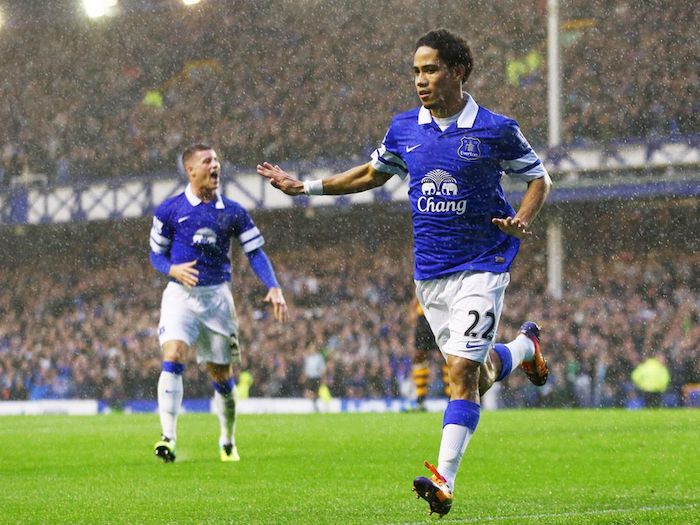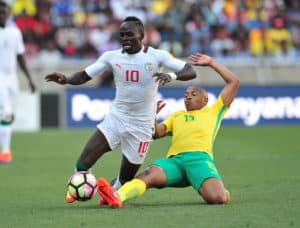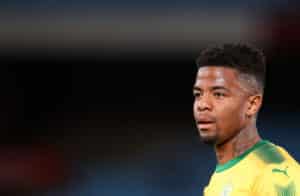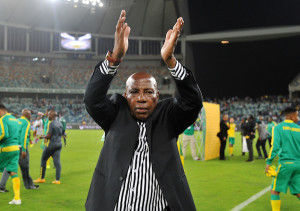There is a long history of South Africans competing in the English FA Cup final, writes Mark Gleeson.
Football’s oldest cup competition can boast many stand-out moments, not least exactly a century ago when the FA Cup final marked the opening of the new Wembley stadium and a white horse was needed to control the crowd, which had spilled on the edge of the playing surfaces.
Historians still argue about which was the best ever final, but a persistent candidate remains the 1953 decider – a game now 70 years old, and with a South African at the forefront.
It has become known as the ‘Matthews final’ – a dramatic come- from-behind win with the crafty play of the veteran Sir Stanley Matthews at its centre, but it was Bill Perry from Johannesburg who scored the match- winning goal.
Its mythical status lies in the fairy-tale circumstances surrounding Matthews’ participation. He was England’s most popular player of his generation, but had Twice been on the losing side in FA Cup finals with the Seasiders, in 1948 and 1951.
At 38, it was the last chance for the ‘Wizard of the Dribble’ to make it third time lucky and his dream was secured by a last-minute winner from Perry, who, as Matthews said many years later, deserved a lot more credit for his role in one of the greatest comebacks of all time.
“To be honest, I found the whole thing one big embarrassment. Every time I hear the words [Matthews Final] I cringe with embarrassment because quite simply it’s not true,” he is quoted as saying in David Tossell’s book about the match, The Great English Final.
An old-fashioned outside-left, Perry was born in Johannesburg and signed for Blackpool in 1949, after offers from Charlton Athletic and Birmingham City.
“Charlton were signing a lot of players from South Africa at the time,” Perry said in an interview before his death in 2007.
“But the Blackpool scout, Billy Butler – who played with our manager, Joe Smith, at Bolton – persuaded me. He said, ‘It’s by the seaside, it’s a lovely town, and you’ll be playing with one of the best players in the world’. That was enough for me.”
“It was very quiet in the dressing room before the game,” recounted Perry, who at the time of his death was one of just two surviving players from the winning team.
“I can remember hearing ‘Abide With Me’. Then, as we walked on to the pitch, the noise was deafening.”
The football world was agog at the prospect of Matthews finally achieving his dream in what in those days was the biggest prize in the game, bigger the World Cup and three years before the European Cup was launched.
However, Bolton threatened to deny Blackpool again and led 3–1 with barely 30 minutes to play. Centre forward Stan Mortensen then scored twice to complete a hat-trick – his third goal a thunderous free kick with less than three minutes remaining – to set up a tense end.
In the second minute of added time, Matthews went past Bolton’s Ralph Banks on the outside and cut the ball back into the penalty area, from where Perry drove home the winning goal.
“Stan slipped as he crossed the ball, but he looked up as he fell and saw me score,” Perry recalled.
South Africans have played other historical roles in the world’s oldest cup competition – Albert Johanneson was the first black man to play in a FA Cup final, ending on the losing side for Leeds United in the 1965 final against Liverpool.
South African representation in the FA Cup stretches back over a century when the Rawson brothers, one born in Mauritius and the other in South Africa, competed against each other in the 1874 final.
William Rawson, born in South Africa, was on the winning side as Oxford University won 2–0 against the Royal Engineers, for whom his brother Herbert, born in Mauritius, was playing.
There has been a total of 10 South African-born players who have competed in the FA Cup final, the most recent being Steven Pienaar for Everton in 2009.





